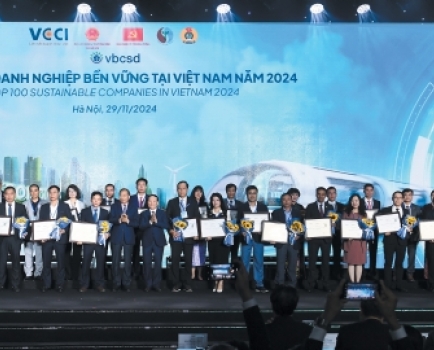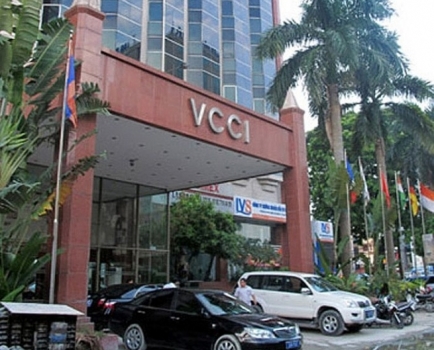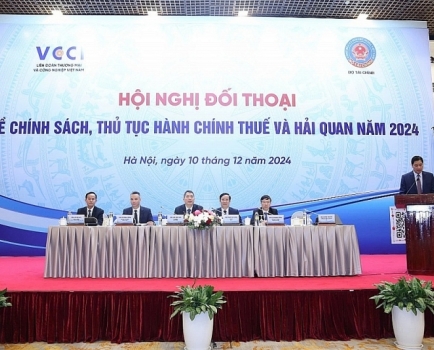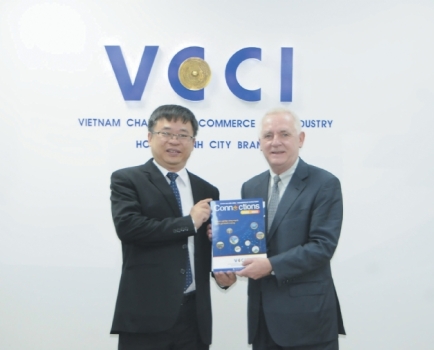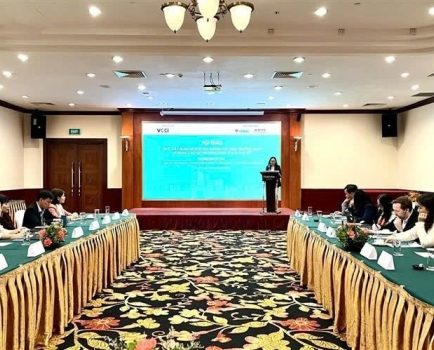FDI firms keep strong confidence in Vietnam
Fri, 29 Apr 2022 16:28:00 | Print | Email Share:
Among the 22 provinces and cities with FDI enterprises joining in the PCI-FDI Survey 2021, three provinces and cities in the Red River Delta have the highest rate of enterprises expected to expand their operations: Ha Nam (65.4%), Quang Ninh (65%) and Hai Phong (60%).
This information was announced in the Provincial Competitiveness Index (PCI) Report - PCI 2021 by the Vietnam Chamber of Commerce and Industry (VCCI) and the United States Agency for International Development (USAID).
Many businesses plan to expand their operating scale
The PCI - FDI survey 2021 was conducted in 22 provinces and cities with the highest concentration of FDI firms in Vietnam. The sample size was determined to ensure the representativeness of FDI enterprises in each province and city. Accordingly, respondents were randomly selected, categorized by locality, by years of incorporation, by type and by industry. As many as 1,185 FDI firms from 46 countries and territories joined the PCI-FDI Survey 2021, with a response rate of 28.2%. In the 2010-2021 phase, 18,172 FDI companies responded to the PCI-FDI Survey. The PCI-FDI Survey continues to be one of the largest and most comprehensive annual FDI business surveys in Vietnam.
The survey shows that the performance of FDI enterprises in Vietnam in 2021 weakened from the previous year. Profitable companies accounted for 38.72% in 2021, the lowest in 10 years. 47.9% of respondents reported losses, slightly higher than 47.1% in 2020, the highest since 2012. Only 7.8% increased investment capital in 2021, the second straight year with single-digit growth. However, 50.6% employed more workers in 2021. These figures partly showed that the COVID-19 epidemic caused serious impacts on FDI firms in Vietnam. Despite numerous difficulties triggered by the COVID-19 epidemic, they still have solid business confidence in Vietnam.

The PCI-FDI Survey continues to be one of the largest and most comprehensive annual FDI business surveys in Vietnam.
After a significant pickup in 2020, when only 40.8% planned to expand their business scale in the next two years, the PCI-FDI 2021 Survey saw 47.7% with the same intention. The renewed optimism of FDI firms is observed in most industries, whether export-oriented or domestic.
Among the 22 provinces and cities with FDI enterprises joining the PCI-FDI Survey 2021, three provinces and cities in the Red River Delta have the highest rate of enterprises expected to expand their operations: Ha Nam (65.4%), Quang Ninh (65%) and Hai Phong (60%). The northern mountainous region has two representatives in the Top 5 with the highest rate of FDI enterprises intending business expansion: Thai Nguyen (59.3%) and Bac Giang (58.1%). Notably, some localities have a large number of FDI firms with a lower rate of expansion plans than the national average, such as Hanoi (46.1%), Binh Duong (45.9%), Ho Chi Minh City (44.6%) and Bac Ninh (44.1%). Localities with a relatively lower rate of FDI enterprises planning for expansion than the national average include Binh Phuoc (21.4%) and Da Nang (34.4%).
Continued labor quality improvement
The assessment of FDI firms on local labor quality is an important indicator for provincial and municipal governments to take into account in investment attraction and business development. According to the PCI-FDI 2021 Survey, labor quality continues to basically meet FDI enterprises' needs. Just 15% of respondents said that local workers fully satisfy their requirements and 43% said that local workers meet most of their employment needs. 37% said that labor quality is good and about 5% said it largely or completely fails to meet their needs. However, FDI firms are quite optimistic about labor quality improvement in the future.
According to respondents, local labor quality has steadily improved in recent years, both universal education quality and vocational training quality. Specifically, on a 6-point scale (1. Very poor to 6. Very good), FDI companies gave 4.5 points to universal education quality in 2021, compared to 3.9 points in 2017. The same improvement trend has also been observed in vocational education quality, scoring 4.4 points in 2021, compared to 3.8 points in 2017.
Although the pandemic disrupted many activities, FDI firms remained optimistic about vocational training quality and the universal education quality of their employees. Another aspect of human resource development is how easy it is to recruit skilled workers for a company's replacement or expansion plans. The easiest workers to be recruited are unskilled workers (62%) and accountants (42%), followed by technical workers (25%) and managers and supervisors (20%). The hardest workers to be recruited are executives (15%), reflecting a general trend in the world. However, in 2021, FDI firms appeared to be facing more difficulty in recruiting workers than in previous years. This was evidenced in recruiting unskilled workers, technicians and accountants in 2021. The recruitment of executives and supervisors in 2021 might be easier than in 2020 but equally the same as in 2017-2019. Meanwhile, senior personnel such as CEOs were harder to find in 2021 than in 2020, possibly due to the increased demand for hiring highly qualified executives in the context of a challenging business environment.
The average labor training cost accounts for 5.69% of total operating costs of FDI firms in the PCI-FDI Survey 2021, higher than in 2020. However, confidence intervals of 95% in labor training cost in 2021 over previous years are overlapped, showing that this is not statistically significant. Therefore, the average labor training cost of FDI companies has not changed much in the past decade.
Workforce stability is an important factor for FDI companies to operate effectively. The PCI-FDI 2021 Survey shows that 60% of employees trained by employers stay and work for more than one year, significantly lower than 66% in 2020 and the lowest since the PCI-FDI Survey was launched in 2010. In 2021, the Central Coast region and the Red River Delta region have the highest percentage of employees who continue to work for more than one year after being trained by FDI firms, standing at 64.3% and 63.2%, respectively. Southeast provinces have the lowest rate of workers staying more than one year (57.1%). However, the disruption of labor resources is largely unintentional by both employers and employees.
By: Business Forum Magazine
Source: https://en.diendandoanhnghiep.vn/fdi-firms-keep-strong-confidence-in-vietnam-n34095.html
---------------------------------------------
Same category News :



